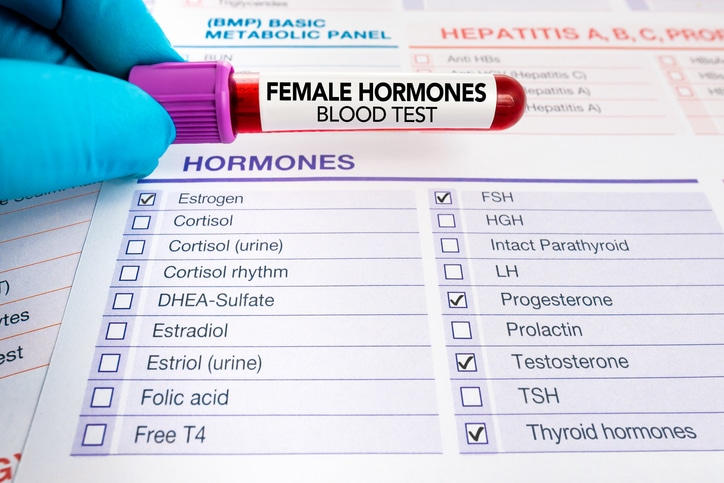Many women expect a blood test or lab work to determine whether they have begun perimenopause, but the body often tells the story before any exam can.
“A lot of patients ask me about doing tests to see if they are perimenopausal or menopausal,” says Heather Havener, MD, OB-GYN at Methodist Mansfield Medical Center. “There really isn’t a test that tells us where you’re at in that journey.”
The first sign of change shows up in a woman’s menstrual cycle. Periods that once ran like clockwork may suddenly arrive earlier or later, last longer or shorter, or even skip a month.
“Hormones fluctuate all the time, so it doesn’t really matter whether you’re perimenopausal at menopause or post-menopausal,” Dr. Havener says. “What matters is, is talking about your symptoms and deciding what we can do to make you feel better.”
These shifts can feel unsettling, even alarming. But doctors say those changes are the body’s way of signaling the natural transition into menopause.

TESTS CAN BE UNRELIABLE
Hormones are unpredictable during this transition, and Dr. Havener often tells her patients that lab work cannot reliably pinpoint the beginning of perimenopause or menopause.
“Labs don’t make the diagnosis,” she explains. “During perimenopause, you still have periods, so your hormone levels are going to be in the normal range.”
Instead, the better measure is what’s happening with your cycle. Is your period heavier? Lighter? Are the days between getting shorter or longer? Those changes speak louder than a lab result ever could.
Over-the-counter tests that claim to allow women to determine how close they are to menopause use a urine sample to detect follicle-stimulating hormone (FSH), which tends to be high in women nearing menopause. But because FSH is also high before ovulation, these at-home tests may not show much.
“They’re not necessary or helpful for your medical professional,” says Robin Kindred, MD, OB-GYN on the medical staff at Methodist Midlothian Medical Center. “No lab test is going to prove this more than your own symptoms and your lived experience.”
Dr. Kindred notes that the beginning of menopause is clearly defined as “the cessation of period,” literally 12 months without a menstrual cycle. But that may not strictly apply to every woman.
From routine checkups to advanced gynecological surgery, Methodist has the services women need at every stage of life. Learn more at MethodistHealthSystem.org
HOW PERIODS GET IT WRONG
For some women, menstrual changes may not serve as a reliable guide. Women who have had a hysterectomy or live with polycystic ovary syndrome (PCOS) may not have regular periods to mark the transition.
Other conditions like weight changes, thyroid problems, autoimmune disorders like lupus, and of course, an unexpected pregnancy can disrupt menstrual cycles.
“That’s when we pay closer attention to other symptoms,” Dr. Havener says. “Hot flashes, night sweats, mood swings, or sleep difficulties can be just as telling.”
These signs, she adds, help doctors piece together the bigger picture of hormonal shifts.

TALK TO YOUR DOCTOR
All these physicians agree: The best tool in this transition isn’t found in a lab. It’s found in your doctor’s office, with a candid conversation.
“Talk to your doctor about the symptoms that you’re having,” Dr. Havener says.
And if you don’t feel comfortable speaking with your doctor, maybe that’s not the right physician for you. No woman should feel brushed off.
Perimenopause doesn’t look the same for everyone. For some, it’s only irregular cycles. For others, the changes ripple into daily life, bringing fatigue, brain fog, or mood swings that make it harder to keep up.

DON’T SUFFER ALONE
There is good news: Relief is possible and readily available.
If your periods don’t look like they used to, take note. It could be your body’s way of asking for care and attention. And when you bring those changes to your doctor, you’ve already taken the most important step toward feeling better.
“Ultimately, it’s not about chasing a number in a lab test,” Dr. Havener says. “It’s about helping you feel your best.”






